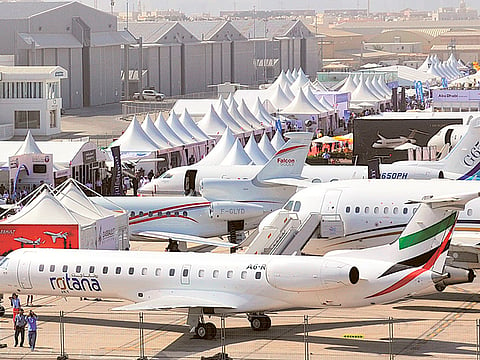Boeing sees Turkish Airlines challenging Emirates, Etihad hubs
Turkish Airlines has built a hub and spoke network to 284 destinations, mostly international, from its base in Istanbul in Turkey

Abu Dhabi: Turkish Airlines is emerging as a threat to two of the Middle East’s largest carriers, Emirates and Etihad Airways, the president of Boeing International said on Monday.
“The UAE airlines have started with a real focus on this global hub strategy that was differentiated but I think that Turkey (Turkish) is starting to rival [them],” Bertrand-Marc Allen told reporters at the Global Aerospace Summit in Abu Dhabi.
Turkish Airlines has built a hub and spoke network to 284 destinations, mostly international, from its base in Istanbul in Turkey. Last year, the airline made a record $1.1 billion in profit and carried 61.2 million passengers. It has 304 aircraft in its fleet and a further 220 scheduled for delivery by 2020.
By comparison, Emirates is flying to 134 passenger destinations and made $1.2 billion in profit flying 49.3 billion passengers through its Dubai hub in 2015. It operates a fleet of 249 all wide-body fleet aircraft and has 254 aircraft on backorder.
But while Emirates, Etihad and Turkish may all vie over transcontinental traffic, Turkish has the advantage of having 79 million living in Turkey. Around 9 million live in the UAE, where Emirates and Etihad are based.
“Turkey is a significant opportunity, it’s plainly got the capability, the geographic positioning, the population, the culture to be a success and to be the source of a lot of growth over the next 20 years,” Allen said.
Turkish’s Istanbul hub gives it a geographic advantage in connecting transcontinental passengers from the US and Europe with Africa and Asia.
However, unlike Emirates and Etihad it is put at a disadvantage as it cannot fly non-stop to Australia and New Zealand.
But while Emirates operates a strict wide-body fleet, even on short flights to Qatar, Turkish operates a mixed narrow and wide-body fleet that has given it one of the largest African networks. However, Emirates, Etihad Airways and Qatar Airways have been more concerned about increasing protectionism in Europe and the US.
“We’ve had the challenges in the last 12 months in the US with the major three US carries targeting the Gulf carriers. We have now a dialogue with Europe,” Etihad president and chief executive, James Hogan, said at the summit.
US carriers American, United and Delta launched an aggressive lobbying campaign last year to freeze market access to Emirates, Etihad and Qatar Airways, accusing them of receiving $42 billion in state subsidies.
The accusations reverberated in Europe where Lufthansa and Air France-KLM have called for the European Union (EU) to look into the Gulf carriers. The EUs executive arm is now seeking a mandate from member states to renegotiate bilateral agreements with several countries including the UAE, Qatar as well as Turkey.
Sign up for the Daily Briefing
Get the latest news and updates straight to your inbox



